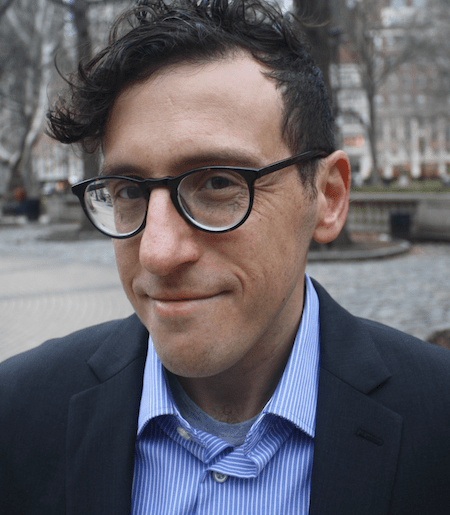
Episode five of Public Historians at Work continues to make wave as UH History graduate Timothy Vale (PhD 2022) speaks with Dr. Stephen Vider (Assistant Professor of History at Cornell University) about the importance of capturing feeling when doing public history. Vider has a research focus on the history of gender, sexuality, home and housing after WWII. His current research project features what happened to HIV/AIDS patients after they were released from state mental hospitals in the 1970’s and 1980’s.
When asked how he became interested in public history, Vider admits that he felt that his work had always involved a public history aspect even if he did not call it that. It was through doing oral histories with individuals who had lived in LGBTQ communes that he began to step into the role of a public historian and connect him with the community.
With a background in journalism, Vider realized that when conducting oral histories that he had to ask more open-ended questions instead of taking a journalist approach that sought specific information. Instead, he had to allow individuals to tell their story in their own way: “This is ultimately their story, they are sharing it with me and I might draw on it in my research, but ultimately this is their space and story to tell.”
Vale asks about Vider’s other public history projects that combine different mediums to reach the public

such as museum exhibits, short films, and publications in the New York Times. For Vider, he feels all of these methods are important. The history he is bringing forward to the public is significant to the present because of the kind of resonance the stories bring with them as well as looking at the activism of the past to inspire the future. He also admits to the joy and terror of being about to see people first hand experiencing and interacting with his public history work.
In speaking about museums in particular, Vider mentions his part in museum exhibits at the Museum of the City of New York. These exhibits include AIDS at Home: Art and Everyday Activism, and Gay Gotham: Art and Underground Culture in New York. For Vider, these museums exhibits are a space for the LGBTQ community in New York to feel seen and represented in all respects. The space served as a place to encounter pain, while also celebrating the work that was done to care for those suffering from AIDS. In this way, Vider worked to create a space that captured and allowed for the emotions of the visitors to be a part of the exhibits. He also reminds listeners that these exhibits are a way to remember and experience the home life of those in the LGBTQ community with AIDS, but that this is not just part of history but an on-going story that affects many people today.
As the director of Cornell’s Public History Initiative, Vider’s goal is to inspire larger conversations with students, the faculty, and the greater Cornell area about the meanings of history and to help students understand the stakes of historical research and the powers of knowledge as a process of production. He encourages students to question what histories get remembered, which get forgotten, which get rewritten and why.
Vider admits that one unexpected challenge of directing this program was the impact COVID-19 had on being able to work with students and their research. This encouraged Vider and his students to take their public history projects in a more digital direction. It had the added benefit of allowing for their projects to have a greater reach than originally intended, as well as a push to digitize many of the collections that were already in the Cornell archive.
The pandemic also pushed for the development of an oral history fellowship program that is allowing Cornell students to work on public history work in their community. These students are now working to collect oral histories from the community and find ways to share the history of Ithaca.
Vider hopes moving forward that there will be an increased awareness and interest not only in LGBTQ histories, but also in the ethics of public history, and in the importance of public facing history projects that keep feeling and humanity as a key frameworks for historical narratives and community engagement.
Listen to the full interview here!
To find out more about Dr. Vider’s work, visit his website: https://www.stephenvider.com/